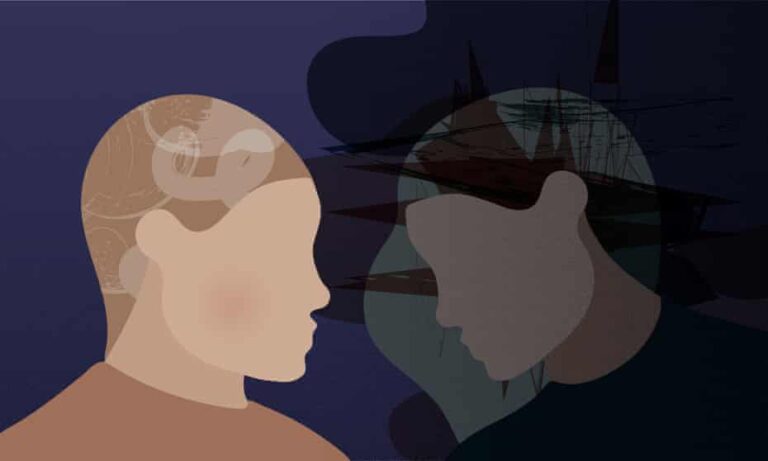Dating can create a wave of emotions in everybody, even those who don’t live with a mental illness. But, for the nearly one in five Americans living with a mental illness, dating can be even more overwhelming.
For those living with borderline personality disorder (BPD), relationships can be driven by emotion, filled with conflict, and highly chaotic. But, whether you’re dating someone who lives with BPD or you are a person with BPD trying to navigate the world of dating, healthy relationships are possible.
Therapy, support, and other resources, such as those offered by BetterHelp, can help those living with BPD and their romantic partners have successful relationships.
What is Borderline Personality Disorder?

Borderline Personality Disorder, also known as BPD, is a mental health disorder caused by a combination of environment and genetics. BPD is a personality disorder characterized by unstable moods and mood swings, an unsteady identity, and intense emotional reactions.
Those who experience BPD experience more intense emotions than neurotypical people, which can lead them to be impulsive. Those living with this mental illness may also engage in risky behaviors, such as self-harm, or become suicidal.
(If you or a loved one are experiencing suicidal thoughts, reach out for help immediately. You can contact the National Suicide Prevention Lifeline 24/7 at 1-800-273-8255.)
While only a professional can definitively diagnose someone with BPD, there are some common symptoms, including:
- Fear of being abandoned
- Short, unstable relationships
- Always feeling empty inside
- Short, explosive temper
- Paranoia and/or dissociation
People living with BPD may also have a more challenging time returning to a stable emotional state. If something good happens, they may be happier and joyful longer than most people. However, they may be more depressed for longer and find it harder to bounce back if something negative happens.
Dating With BPD

If you are one of the 1.4% of American adults experiencing BPD and its symptoms, dating can be challenging and sometimes triggering. You may notice that all your relationships are rocky, whether with friends or a romantic partner.
However, your romantic relationships may be tough and challenging because your emotions constantly change. For instance, you might be affectionate and loving one minute and withdrawn and angry the next.
Due to your fear of abandonment, you may find yourself breaking up with your partner before they have a chance to break up with you. Likewise, you may also push your partner away when you feel overwhelmed or sense a change in your partner’s feelings.
These emotional swings can make it difficult to have lasting relationships with BPD. However, there is hope. Therapy, treatment, support from friends and family, and hard work on your part can help you manage your symptoms and experience the joy of a long-term romantic relationship.
Tips to Make Dating with BPD Easier
Despite how scary your changing emotions may be, one of the best ways to make it through the instability is to sit with them and allow yourself to be present in the moment. Not only does this help teach you how to identify and regulate your emotions, but it can also help you communicate with your partner about your emotions. Sharing your feelings is vital to a healthy, lasting relationship.
Some other ways to make dating with borderline personality disorder easier are:
1. Don’t confuse compatibility with attraction:

If you live with BPD, you may notice yourself being driven by your emotions and attraction towards a potential romantic partner. While attraction is an integral part of a healthy relationship, it can’t make up for lack of compatibility. Finding someone who you’re compatible with, who is willing to be a supportive and listening ear, and who provides emotional stability can make it easier for you to manage your emotions in a healthy way.
2. Go Slow:
For many, BPD is a result of trauma. Even if it’s not a result of trauma, proceeding too quickly in a relationship can cause intense emotions and result in trauma bonds. Trauma bonds are strong emotional attachments formed from repeat abuse and positive reinforcement. By relying on your partner to meet all your needs too soon in a relationship, you can quickly become dependent on them. If the relationship fails, you could quickly lose your identity. Instead of rushing into a fully committed relationship, take some time to get to know your potential partner to see if they are a good match for you.
3. Embrace all your emotions:

If you live with BPD, you may notice you overthink a lot, especially in romantic relationships. For instance, if you sense a shift in your partner’s feelings, you may start to panic and overthink about whether they will break up with you. Instead of focusing on the thoughts, focus on the emotions you feel. Are you scared? Nervous? Sad? What are the feelings trying to tell you? By naming the emotion, you can focus on why you’re feeling that way and cope with the distress better.
While these aren’t foolproof methods for managing BPD symptoms while dating and aren’t a substitute for therapy, they can be an excellent place to start your journey. You may find it easier to trust yourself and your emotions and trust the people around you and your partner.
How to Care for a Partner Living with BPD

Dating someone living with BPD can be challenging at times, but it can also be gratifying. While they can be distant and withdrawn, they can also be highly affectionate, caring, and compassionate.
If you are in a relationship with someone diagnosed with BPD, you need to remember you cannot fix them. They must be willing to seek treatment for help managing their emotions and BPD symptoms. However, as their partner, you can support them in their journey.
Communicating with them regularly about your feelings and emotions may make it easier for your partner to identify their feelings. Regular communication may also help establish trust, reduce overthinking, and help them to not withdraw during periods of intense emotion.
Your partner may require more reassurance and validation than you do to feel secure in your relationship. Listening and validating your partner’s feelings when they are being vulnerable and reassuring them that you care for them can go a long way in creating a stable, lasting relationship.
Dating in the best of circumstances can be challenging, let alone when one of the people is living with BPD. However, while it may seem impossible, people with borderline personality disorder can experience fulfilling relationships.
With the support of therapy, the patience of a caring partner, and educating themselves and their partner on their symptoms and emotions, recovery is possible.

